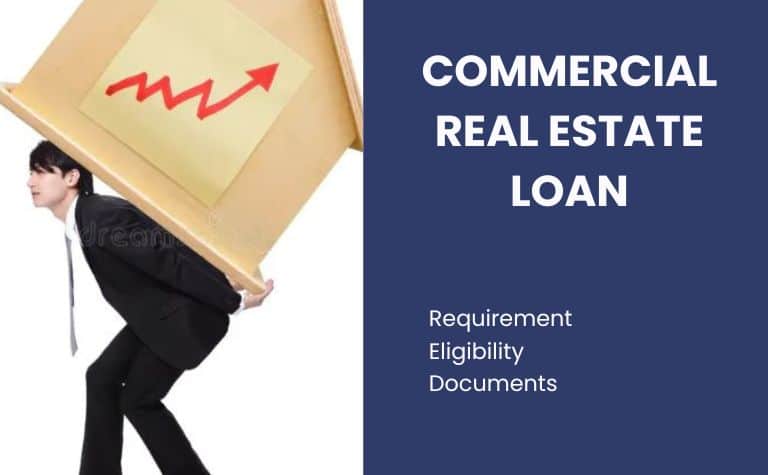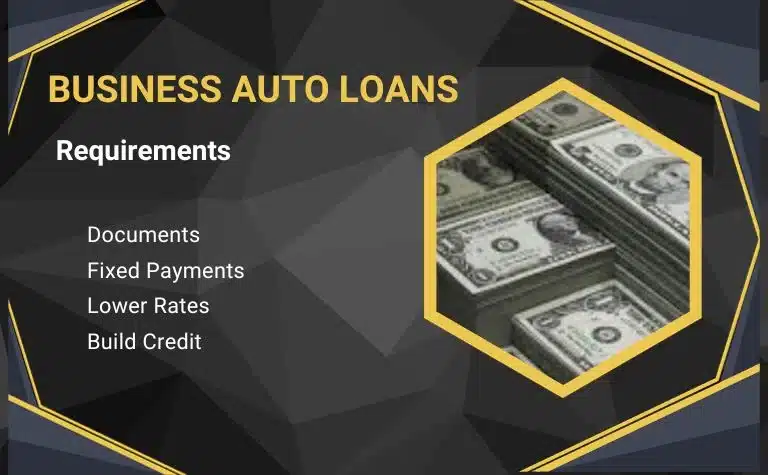Commercial Real Estate Loan – A Comprehensive Guide
Navigation of commercial real estate loans may appear complex. Finding an appropriate lender, negotiating complex terms, and ensuring their investment yields maximum return are all essential steps in borrowing money to finance commercial real estate properties.
Locating and choosing the appropriate Commercial Real Estate (CRE) loans can be challenging for property investors. With so many requirements and types available to investors, finding one suitable can be tricky. Our comprehensive guide covers every facet of CRE loans-from understanding basic principles to which type best matches investor projects.
What is a Commercial Real Estate Loan?
Commercial real estate (CRE) loans provide financing specifically to purchase, build, or renovate real property used for business. As collateral against this loan, the actual property serves as security.
Commercial real estate (CRE) refers to any asset that provides investors with profit, such as retail stores, office buildings, warehouses, manufacturing facilities, shopping malls, and multifamily apartment buildings. CRE loans provide financing solutions for projects of various scales, from retail shops to large industrial complexes.
As with other asset-backed loans, Commercial Real Estate loans come in various shapes and forms with varied terms, amounts, rates, approval times, closing costs, and associated fees. Depending on project type, loan amount needed, and financial circumstances, borrowers may use CRE loans for construction projects, long-term mortgage refinancing, or expansions. These factors alone determine the appropriate loan choice.
CRE loans are designed for business or investment use rather than residential purposes, making the differences clear to borrowers when considering available options. Learning what makes up a CRE loan will enable smoother navigation through all their available choices.
What Types of Commercial Real Estate Loans Options Are Out There?
When it comes to funding commercial real estate ventures, investors have an array of loan options to explore. From traditional bank loans to alternative online lenders, there is a lending product for every type of borrower and project.
Deciding which type of commercial real estate loan is right for your next project can be confusing with so many choices available. Traditional banks, the SBA, private, and online lenders offer financing products tailored to different borrowers’ needs.
Traditional bank loans
Traditional bank loans are probably what comes to mind first. Banks offer them and usually have the most affordable rates and longest terms. But you’ll need pristine credit and financials to qualify.
SBA loans
SBA loans from the Small Business Administration are another solid choice, mainly their 7(a) and 504 programs. The SBA ensures part of the loan, making it easier to get than a traditional bank loan. Rates are still competitive.
Hard money loans
Hard money loans offered by private lenders can be a lifesaver for funding fast or if you won’t qualify elsewhere. Their requirements are way more flexible, but rates are higher.
Bridge Loans
If you need a short-term boost, bridge loans fill the gap until you can get longer-term financing. Banks or private lenders offer these.
Short Term Loans
Online lenders provide short-term loans up to $250K. Super quick funding but higher rates. Great for an urgent small amount.
As you can see, there are all kinds of commercial real estate loans from lenders of every stripe. Do your homework to pick what works best for your scenario: loan amount, timeline, property type, and your financials. The right match is out there!
How Do Commercial Real Estate Loans Work?
Getting commercial real estate loans isn’t too different from a regular home mortgage, but there are some key differences to note.
First, you’ll need to find a lender, usually a bank, credit union, or private lender, that offers commercial financing. Submit all the required paperwork like your financials, business plan, property details, etc.
The lender will dig into your finances, the property, and local market conditions. If you check all the boxes, they’ll give you a formal offer outlining the loan amount, interest rate, fees, repayment timeline, and other terms.
Once you accept, you’ll put down a 20-25% down payment; the lender will issue the rest to finalize the purchase.
You repay the loan in monthly installments over a set number of years, typically 5-30 years for commercial mortgages. If you default, the property can be taken as collateral.
Compared to home loans, commercial real estate loans often have variable rates, bigger down payments, shorter repayment timelines, and stricter qualification requirements. But they make it possible to fund your CRE project.
Commercial Real Estate Loan Requirements
When applying for commercial real estate loans, borrowers must meet the lender’s requirements. Key requirements include:
- Down payment: Typically 20-25% of the property’s purchase price. Some loans may require 10-15%.
- Credit score: Minimum credit scores vary by lender, usually 600+ for commercial loans. Higher scores get better terms.
- Debt-to-income ratio: Your debt divided by income. Lenders look for ratios below 50% in most cases.
- Loan-to-value ratio: Loan amount divided by property value. The higher the LTV, the riskier for lenders.
- Financial statements: Tax returns, profit/loss statements, and balance sheets proving business stability.
- Business plan: A thorough plan demonstrating the ability to repay. More rigorous for startups.
- Experience: Some lenders require 1-5+ years in business and commercial real estate.
- Property appraisal: Assesses the property’s fair market value and viability.
Meeting these requirements shows lenders you can manage repayment risk. Know the specific guidelines of your chosen lender. With strong finances and collateral, you can get approved.
Advantages of Commercial Real Estate Loans?
Commercial loans offer some sweet perks for real estate investors and businesses:
- Major purchase power: Loans provide leverage to buy larger, more valuable properties.
- Usually good rates: Mortgage rates are competitive with residential rates.
- Predictable payments: Scheduled monthly payments add stability.
- Tax deductions: Interest and expenses can lower your taxable income. Cha-ching!
- Building equity: Your monthly payments build equity you can tap into later.
- Flexible financing: Loans can be tailored to different property types.
- Fuel for growth: Funds enable expanding locations, facilities, and operations.
- Refinancing: You can swap existing loans for better terms.
When you understand the advantages, you can use commercial financing strategically as part of your real estate investment master plan. The right loan can provide some serious perks and upsides.
Summing It Up
At first, navigating the commercial real estate loan world may seem confusing, but now that you are more acquainted and have all that vital information needed for decision-making.
Commercial real estate loans exist for every situation and financial circumstance. Do your research, carefully analyze your finances and property details, and select an ideal lender – you have everything it takes! When necessary, seek professional help, such as brokers, to help find an answer that suits you perfectly.
You can secure excellent commercial financing terms for your next real estate project with careful preparation and knowledge. Use this guide as a starting point; there is undoubtedly the ideal loan solution out there waiting for you!




